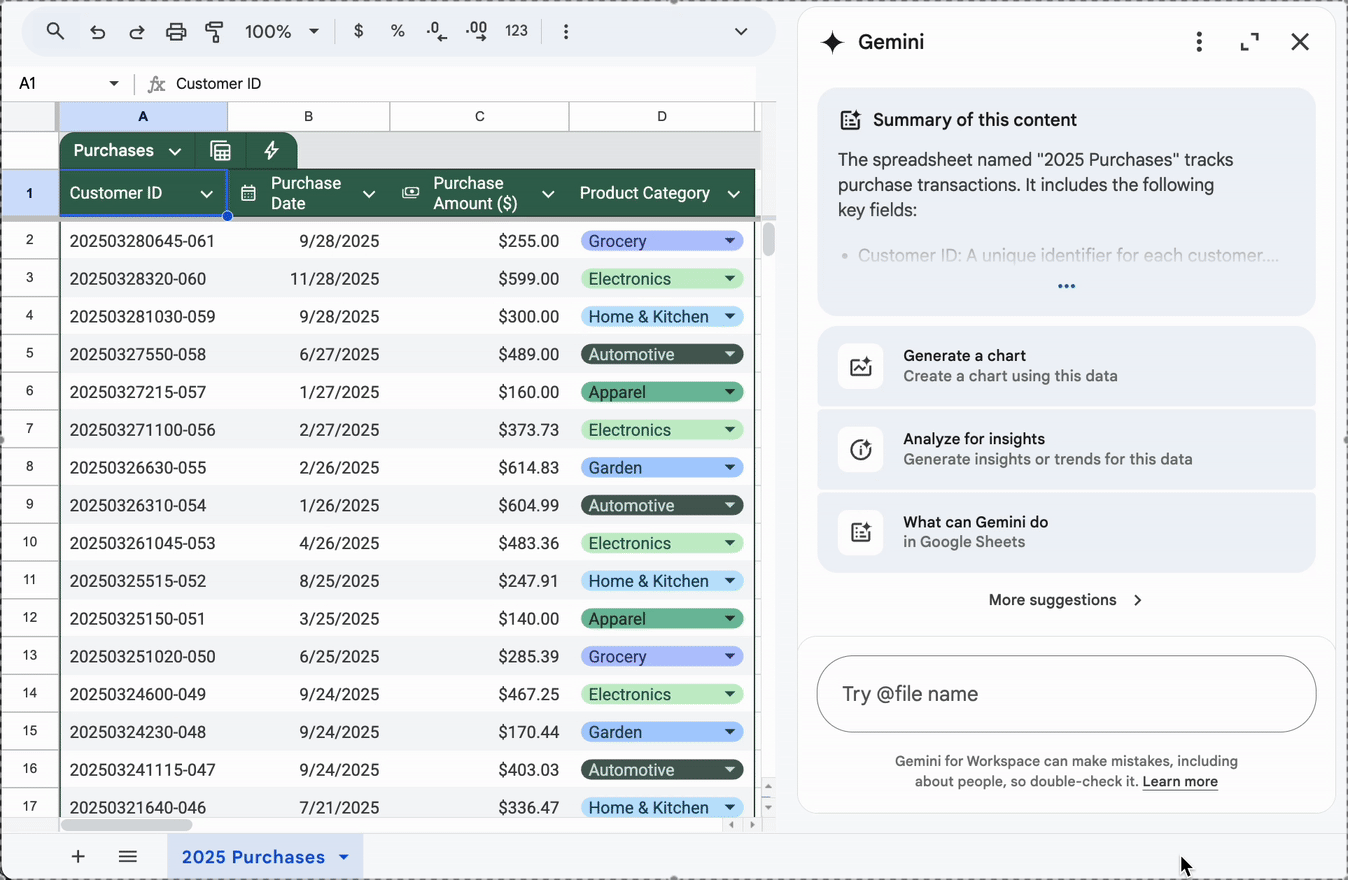
Google Sheets has introduced a game-changing AI function that could fundamentally transform how we work with spreadsheets. Unlike the existing Gemini assistant that offers external suggestions, this new AI function is directly embedded into formulas, allowing you to harness artificial intelligence right where you need it most - in your cells.
What Makes This Function Special
The new AI function lets you write formulas using natural language prompts instead of memorizing complex syntax. Want to add up some numbers? Instead of typing =SUM(A1:A10), you can simply write =AI("Add the numbers in these cells", A1:A10).
This function goes far beyond basic calculations, excelling at tasks that traditional formulas couldn’t handle:
- Classification - Categorizing text data automatically
- Translation - Converting content between languages
- Analysis - Finding patterns and insights in complex datasets
- Data extraction - Pulling specific information from unstructured text
Performance on Classification Tasks
The article details testing of the AI function on various classification challenges with promising results. The function demonstrated strong capabilities in handling nuanced data tasks that would normally require external processing or complex formulas.
While powerful, the article notes the importance of understanding the potential risks of generative AI outputs, suggesting users should maintain awareness of accuracy limitations in certain contexts.
How This Changes Your Spreadsheet Experience
This development could make many traditional spreadsheet functions obsolete. By replacing complex formula syntax with conversational commands, Google is making spreadsheets more accessible to everyone, not just formula experts.
The natural language interface creates a more intuitive workflow - you can simply tell your spreadsheet what you want it to do, and the AI will handle the technical implementation behind the scenes.
What This Means For You
If you regularly work with data in Google Sheets, this function could dramatically speed up your workflow, especially for tasks involving text classification, pattern recognition, or data organization that previously required manual effort or custom scripts.
For beginners, the barrier to spreadsheet mastery just got significantly lower - you can now leverage powerful data capabilities without memorizing formula syntax.